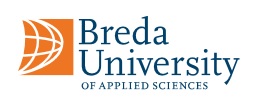BSc Degree Programme in Logistic Engineering (Breda University of Applied Sciences)
Breda, Netherlands
Reviewed by NVAO
- Valid from
- 02-10-2023
- Valid until
- 01-10-2028
Contact information
- Institution
- Breda University of Applied Sciences
- Website
- https://www.buas.nl/en/
- Country
- Netherlands
Assessment report
AeQui panel reportLE CeQuint defExecutive summary
The Bachelor Logistics Engineering was assessed. AeQui assembled an assessment panel that studied the self-evaluation report and undertook a site visit in Breda on the 1st and 2nd December 2022.
Standard 1: Intended internationalisation
The programme receives the assessment good on Standard 1.
The panel concludes that the programme has clear internationalisation goals which are well-documented and well-suited to a Logistics Engineering bachelor’s programme. The goals are widely shared and supported by stakeholders both within and outside the programme. The panel notes that the goals include measures which indisputably contribute to the quality of teaching and learning. The internationalisation goals are operationalised very well in objectives which are well-chosen and verifiable and that allow the systematic monitoring of the achievement of these goals. The management convincingly explained how ABEL’s verifiable objectives are translated to the Logistics Engineering programme. The committee advises the programme to make this more explicit in the documents.
Standard 2: International and intercultural learning
The programme receives the assessment good on Standard 2.
The panel is pleased that the programme has concretised its overall intended learning outcomes that are geared towards internationalisation, by formulating a distinct and elaborated list of intercultural and international learning outcomes. These intercultural and international learning outcomes are well-chosen and are a clear reflection of the programme’s internationalisation goals. Further improvement can be realised by more explicitly relating the intercultural and international learning outcomes to the overall intended learning outcomes, thus creating one integrated and coherent whole. The panel appreciates the assessment methods used. They are varied, well-chosen and well-suited for measuring the achievement of the intended international and intercultural learning outcomes. The achievement of the intercultural and international learning outcomes is convincingly demonstrated by the sum of the various assessments, the theses, the graduates’ careers as well as by the information provided by the alumni and industry members during the site visit. The level at which students achieve the international and intercultural learning outcomes is arguably higher for graduates of the English-taught 4 year track than for graduates of the Dutch-taught track and of the 2 and 3 years tracks, given the partially different learning environment and the shorter duration.
Standard 3: Teaching and Learning
The programme receives the assessment good on Standard 3.
The panel concludes that the content and the structure of the curriculum provide good means for achieving its international and intercultural intended learning outcomes. All of the intended intercultural and international learning outcomes are covered by the programme and the building block internationalisation is an integral part of all curriculum elements. The campus also provides many opportunities for Internationalisation at home. In addition, the teaching methods are suitable. The new curriculum contains a lot of group work and specific attention is paid to diversity within the student groups. The international learning environment provides ample conditions for achieving the international and intercultural intended learning outcomes. Not only for students of the English taught programme, but also for students of the Dutch taught programme, the learning environment contains many elements to ensure the development of intercultural and international skills.
Standard 4: Staff
The programme receives the assessment good on Standard 4.
The quantity and quality of staff facilitate the achievement of the intended international and intercultural learning outcomes definitely well. Team members are very enthusiastic and the composition of the team is highly international. Staff members have ample internationalisation experience, participate in various relevant international networks and unambiguously have the required intercultural competences and language skills. Furthermore, there is a good policy in place to ensure that suitable candidates are employed for new vacancies. To even further diversify the staff composition, for future job postings the programme may consider actively encouraging applicants with non-Dutch and international work backgrounds, preferably non-European. The panel appreciates the booklet about the Intercultural classroom as it is offers useful guidelines for bringing the Intercultural classroom to the next level.
There are many services available at BUas for lecturers to enhance their intercultural and international competences. The panel encourages staff members to use these opportunities (like staff exchange) more. Taking the already high workload into account, to the panel’s opinion, offering staff more dedicated time would be beneficial in this respect.
Standard 5: Students
The panel thinks for the English-taught programme, this standard could be judged as excellent and for the Dutch-taught programme as good, but as the framework does not allow for different grades between variations within the programme, the panel assesses Standard 5: Students as good.
The student group of the English-taught programme is very diverse concerning their international and intercultural background. The English-taught group is a more international and an intercultural community on its own. The student group in the Dutch-taught programme – naturally – is less diverse. The influx of international students to the Dutch-taught programme is not so big, since there is an English-taught programme available as well and most international students would choose for the English-taught version. However, both programmes contain many opportunities to gain internationalisation experience, both in the Netherlands and abroad, and extensive services are available for both Dutch and foreign students. With the soft-landing programme and the services for international students the programme is really well organised.